
Mina Anna Maria Mazzini or Mina Anna Quaini, known mononymously as Mina, is an Italian singer and actress. She was a staple of television variety shows and a dominant figure in Italian pop music from the 1960s to the mid-1970s, known for her three-octave vocal range, the agility of her soprano voice, and her image as an emancipated woman.

Cinquemilaquarantatre is a studio album by Italian singer Mina, released on 29 May 1972 by PDU.

...bugiardo più che mai... più incosciente che mai... is a studio album by Italian singer Mina, released on November 1969 by PDU.

Italian singer Mina has released seventy-five studio albums, three live albums, forty-five official compilation albums, six video albums and seventeen extended plays. During her career, Mina has sold more than 150 million copies of her recordings worldwide.

Tintarella di luna is the debut studio album by Italian singer Mina. It was released in March 1960, by Italdisc. Despite the fact that the songs contained on the album have previously been released on various singles and EPs, it is considered not a compilation album, but a debut album in the official discography of the singer.
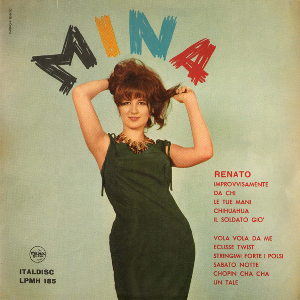
Renato is the fifth studio album by Italian singer Mina released in December 1962 through Italdisc.

Stessa spiaggia, stesso mare is the sixth studio album by Italian singer Mina, released on 1 October 1963 through Italdisc.

"Il cielo in una stanza" is a song written by Gino Paoli and originally recorded by Italian singer Mina for the album of the same name. The song was released as a single in June 1960 by Italdisc. It became a commercial success in Italy, topping the charts for eleven consecutive weeks and later returning to number one for three additional weeks. It is also Mina's best-selling single in Italy, with estimated sales of 400.000 copies.
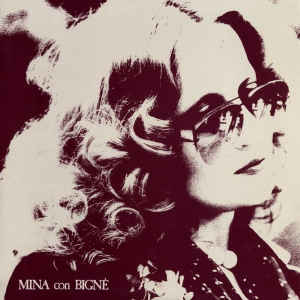
Mina con bignè is a studio album by Italian singer Mina, released in November 1977 by PDU and distributed by EMI Italiana.
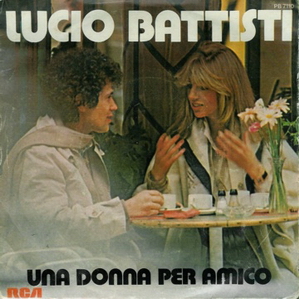
"Una donna per amico" is a song composed by Lucio Battisti and Mogol, and performed by Lucio Battisti. It was released as a single in October 1978, with "Nessun dolore" as B-side. The single peaked at first place fourteen consecutive weeks on the Italian hit parade between November 1978 and February 1979. It was the second most sold single of the year in Italy, behind Bee Gees' "Stayin' Alive".

"Perdono" is an Italian pop song written by Piero Soffici and Mogol and performed by Caterina Caselli.

Italian singer Mina has released 158 official singles and 63 promotional singles.
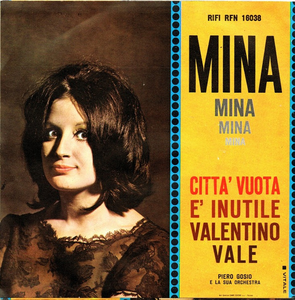
"Città vuota" is a song recorded by Italian singer Mina in 1963. This song is Italian version of "It's a Lonely Town" by Gene McDaniels. The song was written by Doc Pomus, Mort Shuman, and adapted by Giuseppe Cassia.

"Tintarella di luna" is a song recorded by Italian singer Mina. It was written by Bruno De Filippi, at the time a member of the group I Campioni, and Franco Migliacci. The song became the first major hit for the singer, reaching number three in the Italian chart, and its sales exceeded 200,000 copies.

"Un anno d'amore" is a song recorded by Italian singer Mina. The song is a cover version of the French song "C'est irréparable", originally written and recorded by Nino Ferrer. The Italian lyrics were written by Mogol and Alberto Testa. Arranged by Augusto Martelli.
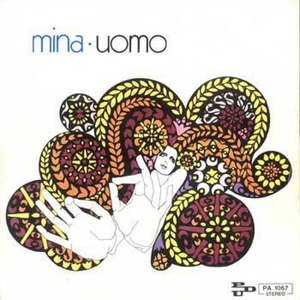
"Uomo" is a song by Italian singer Mina. It was written by Enrico Riccardi with lyrics by Luigi Albertelli.

"Anche un uomo" is a song by Italian singer Mina, recorded for her studio album Attila. It was written by Anselmo Genovese, Mike Bongiorno, Ludovico Peregrini and Alberto Testa. "Anche un uomo" was released as a lead single in March 1979 and peaked at number 9 in its seventh week on the Italian chart. It was also used as a theme song of the game show Lascia o raddoppia? The song "Se il mio canto sei tu", which was written by Paola Blandi and Beppe Cantarelli, was used as a B-side.

"Una canzone" is a song recorded by Italian singer Mina in collaboration with the band New Trolls. The song was written by the band members, the arrangement was made by Gianfranco Lombardi. The song was released as the lead single from the 1981 album Salomè, but the release was commercially unsuccessful, reaching only number 21 on the chart, which became Mina's lowest chart position of all time. The B-side was the song "Quando l'amore ti tocca", written by Ninni Carucci and Renato Di Bitonto.
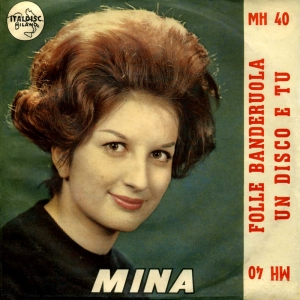
"Folle banderuola" is a song written by Gianni Meccia and initially recorded by Italian singer Mina. It was released as a single in 1959 and reached 18 place on the Italian chart. By December 1960, sales of the single had approached 50,000 copies. The song "Un disco e tu" was used as a b-side. Both songs were arranged by Giulio Libano. Later, "Folle banderuola" was included in the singer's debut album, Tintarella di luna (1960).

"Un buco nella sabbia" is a song by Italian singer Mina, written by Piero Soffici and Alberto Testa. The song was released as a single, reaching number 7 on the Italian chart, and was later included in the album Studio Uno (1965).




















